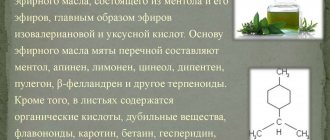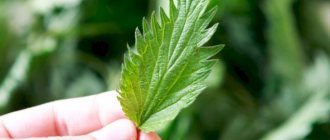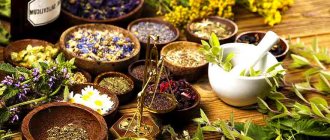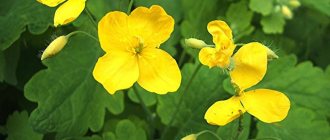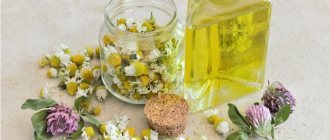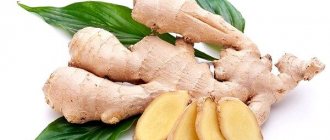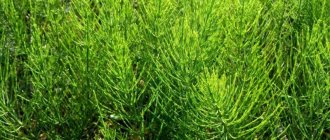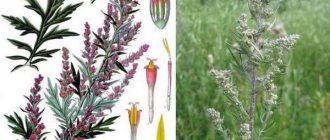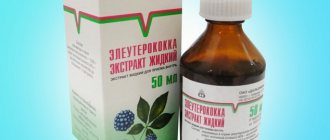What is lemon balm
Melissa officinalis is a plant that belongs to the Lamiaceae family; it reaches a height of more than 50 centimeters. This perennial herb has an erect branching with a tetrahedral stem, opposite petiolate, heart-shaped, ovate, coarsely toothed leaves covered with soft hairs. Small pale pink or white flowers are located on short stalks. The plant blooms in the 2nd year of life in mid-summer. The fruits of the grass are 4 brownish ovoid nuts. The Mediterranean region is considered to be the birthplace of lemon balm.
The flower spread across Europe from Ancient Rome, where it was grown several thousand years ago. In the homeland of lemon balm, the grass is considered a weed; it grows, as a rule, in grassy areas, open forests, in shady bushes, on river banks and along roadsides. Now lemon balm grows actively in Russia, Central Asia, Ukraine, the Caucasus, and Crimea.
Botanical description of lemon balm
Melissa is a perennial and belongs to the herbaceous plants of the Lamiaceae family. If conditions are favorable, the plant can grow in one place for up to 10 years, only over the years their resistance to frost is lost. Melissa stems are branched, erect, tetrahedral, up to 80 cm in height. Excellent honey plant.
Melissa has opposite, ovate, petiolate, large leaves with serrated edges. They are dark green, covered with sparse hairs. After sowing it blooms in the second year. The flowers are often light purple, but there are varieties with yellowish-white and pink flowers. The plant blooms from the beginning of summer, flowering stops in August. The seeds are small, their germination lasts 2-3 years.
This medicinal plant is unpretentious; it does not cause trouble when grown in a garden plot. Melissa grows well on loamy and clay soils; it only dislikes acidic, heavy soil. In open areas it freezes easily because it is sensitive to frost. The most common varieties are: Quedlin creeping and Erfurt erect. Melissa is propagated by seedlings, seeds, dividing bushes, cuttings and layering.
Leaves with parts of young shoots are removed during the opening of flowers or before flowering. At this time they contain the maximum amount of useful substances. The grass is laid out in the shade to dry; in the sun it can quickly turn brown. When using artificial drying, the temperature should not exceed 35 degrees.
Chemical composition
The beneficial properties of lemon grass have made it one of the most common medicines available to everyone. A small number of contraindications and a wide range of therapeutic positive effects are associated with the chemical composition of the herb. The plant includes the following components:
- resins;
- flavonoids;
- bitterness;
- essential oils;
- vitamins B, C, D;
- tannins;
- biologically active substances;
- caffeic, rosmarinic acids;
- macro- and microelements, for example: potassium, iron, zinc, selenium, copper, calcium, nickel, vanadium, molybdenum, chromium, manganese.
Composition and beneficial properties
- Essential oils contained in lemon balm have a soothing, relaxing and antispasmodic effect.
- Bitters improve the functioning of the digestive glands and improve metabolism.
- Flavonoids have antibacterial and anti-inflammatory effects.
- Organic acids are very important for normal metabolism.
- Tannins have an anti-inflammatory effect and accelerate wound healing.
- Various resinous substances have a strong antibacterial effect.
In addition, it contains vitamins B and C, as well as iron, potassium, manganese, selenium and other valuable minerals.
Benefits for the body
The beneficial properties of lemon balm extend to many body systems. The plant has a sedative effect, has an antispasmodic, sedative, and hypnotic effect. It is recommended to take lemon balm tea to lower blood pressure or for heart disease; the herb has expectorant, anticonvulsant, astringent, and hypoglycemic medicinal properties.
Decoctions and infusions of this plant have proven themselves well in anti-inflammatory, antiviral and antimicrobial therapy; lemon balm has antiallergic and antioxidant effects. Medicines based on this herb contribute to:
- decrease in heart rate;
- improves appetite;
- elimination of fermentation anomalies;
- stimulating the secretion of gastric juice;
- lowering blood pressure;
- increased gastric motility (improves digestion);
- activation of the intrasecretory function of the thyroid gland;
- getting rid of bad breath;
- normalization of the menstrual cycle;
- therapy of migraines, nervous disorders, insomnia, rheumatism, atherosclerosis, anemia, gout, bruises, flatulence, dermatitis, trophic ulcers, dyskinesia, pyelonephritis, cholecystitis.
Melissa herb - medicinal properties
The use of lemon balm is advisable for the following diseases and pathological conditions:
- neurology: dizziness, neuralgia, nervous excitement, migraine and other types of headaches,
- insomnia, stress, neuroses, vegetative-vascular dystonia;
- cardiology: rapid heartbeat, irregular heart rhythm, mild forms of ischemic heart disease, pressure surges due to emotional stress, hypertension, tachycardia, atherosclerosis;
- otorhinolaryngology: runny nose, otitis, pharyngitis, sinusitis;
- pulmonology: tracheobronchitis, bronchial asthma;
- dentistry: toothache, gum disease, periodontal disease;
- gastroenterology: digestive problems, gastritis, colitis, colic, flatulence, cholelithiasis, cholecystitis, dyskinesia, dysbacteriosis, fermentopathy;
- gynecology: menstrual cycle disorders, menopausal disorders;
- dermatology: dermatitis, eczema, trophic ulcers, furunculosis;
- other: anemia, rheumatism, bruises and burns, pyelonephritis, diabetes mellitus, obesity, immunodeficiency states, toxicosis during pregnancy.
Melissa herb also has the following beneficial properties:
- sedative;
- painkiller;
- antiviral;
- anti-inflammatory;
- antiemetic;
- diuretic;
- laxative;
- stimulates the activity of the digestive system;
- enhances the secretory function of the stomach;
- stimulates bile duct motility;
- enhances lactation during breastfeeding;
- bacteriostatic.
Application of lemon balm
In folk medicine and many pharmaceutical preparations, the medicinal properties of lemon balm are used. For different types of pathologies, certain medicinal forms of the plant are used. In some cases, baths with the addition of herbs will be much more effective than taking a decoction or infusion. Traditional medicine recipes are aimed at treating specific pathologies or maintaining the general health of the human body.
Treatment of viral diseases
The medicinal properties of medicinal mixtures from lemon balm help to cope with inflammation and colds. For respiratory ailments, flu, and fever, this herb is used. The plant has properties that help relieve fever, increase diaphoretic processes, and effectively fight almost all colds. Children over 3 years of age and adults are allowed to take decoctions and infusions (without alcohol).
For the kidneys
From medicinal raw materials based on lemon balm, you can prepare a solution that will help cope with hepatic colic. You need to take 125 g of dry herb and leave it in 0.5 liters of water for 1 hour. Drink the infusion on an empty stomach 3 times a day. There are no contraindications for taking the herb for kidney stones. The plant has an astringent effect. It has a diuretic and analgesic effect.
Melissa is not an independent treatment for this pathology; it is part of complex therapy. To enhance the healing effect of the herb, additional components and plants are used. For the treatment of kidney stones, it is recommended to take a tincture of the herb according to the following recipe:
- mix mint, lemon balm, chamomile flowers 1 tbsp. l.;
- pour the collection with 200 ml of boiling water;
- let it brew for about 30 minutes;
- drink 200 ml per day.
For the nervous system
Traditional recipes for preparing the plant have a calming effect. Infusions and decoctions are used in complex therapy for the treatment of nervous diseases. The components of the plant calm the nervous system, the medicine helps to cope with:
- stress;
- insomnia;
- neuroses;
- irritability.
Strengthening the immune system
Often the impetus for the activation of a cold or nervous disease is a weakened human immune defense. As long as the body is able to resist microbes, viruses do not manifest diseases in any way, so it is very important to maintain immunity. Melissa contains elements that help strengthen the immune status, vitamins strengthen the defense. It is recommended to drink lemon balm tincture for preventive purposes during periods of possible epidemics of colds.
Possible harm of lemon balm and contraindications
Like any herbal remedy, lemon balm has not only beneficial properties, but also contraindications for use. Fortunately, there are not many of the latter. The most important ones are:
- Allergy to lemon balm.
- Epilepsy.
- Fever of unknown origin.
- Low pressure.
- Children under 3 years of age.
If you have hypotension, taking lemon balm will further reduce your blood pressure, so taking lemon balm in any form is strictly prohibited for such patients.
If you have a history of heart disease (ischemia, bradycardia), then you should not take lemon balm-based products for too long and too much, otherwise side effects may occur, such as a decrease in heart rate and deterioration of the condition. In this case, you should consult your doctor.
Melissa in folk medicine
The plant was originally used by traditional healers who noticed the wide range of medicinal properties of lemon balm. This is one of the most popular plants in folk medicine for preparing infusions, decoctions, and essential oils. The plant is used for tachycardia, melancholy, neuralgia, and, if necessary, to reduce the heart rate, relieve spasms and pain in the stomach, dizziness, and slow down breathing. Women often use lemon balm essential oils for anti-aging baths.
Decoctions and infusions
There are several options for preparing lemon balm for oral administration. An infusion, decoction or tincture is prepared from medicinal raw materials. The preparation method is selected depending on the disease. The following cooking rules exist:
- Infusion. This option does not use alcohol; you will need water heated to 60 degrees Celsius. For 0.5 liters, add 8 teaspoons of lemon balm leaves. Pour everything into a thermos and leave for 6 hours so that the liquid is saturated with the medicinal properties of the plant. You need to drink 100 ml of the product 3 times a day. The infusion is recommended for use for: nervous diseases, fatigue, gastrointestinal disorders, overexcitation, irritability, insomnia, gum pathologies. The remaining inflorescence of the plant is used to apply compresses for radiculitis, muscle pain, and bruises.
- Melissa tincture. The essential oil of the plant is highly soluble in alcohol. This is the basis for preparing tinctures. For 3 parts of vodka or 40% alcohol you need 1 part of raw materials. Infuse for 2 weeks in a sealed container. You need to drink the tincture orally for the treatment of pathologies that are included in the list of indications for treatment with lemon balm. The frequency of administration and dosage is selected individually by a doctor or traditional healer. The tincture has healing properties in the treatment of tinnitus; in this case, it is instilled using a pipette, 4 drops into each ear canal.
- Decoction. For preparation you will need 500 ml of boiling water and 2 tablespoons of dry lemon balm leaves. After boiling, let the water cool for 5 minutes, place the herbs on the bottom of the glass container and fill with liquid. Cover the container with a lid and let the product brew for 30 minutes.
Melissa tea
Tea with this component is an excellent antiviral agent. It is acceptable to combine black or green varieties for brewing. This remedy is an option for the prevention of bronchopulmonary and colds. Green tea and honey are well suited for brewing the plant; the result is a delicious drink with a lemon scent. Raw materials can be grown directly on your own plot at the dacha or found in some fields; ready-made harvests are also sold. Preparing tea is no different from the usual process of brewing a drink.
Recipes for making lemon balm drinks
Having learned about the benefits of lemon balm herb, everyone will probably want to try making a drink from it. How to do this correctly?
Melissa infusion
To prepare a medicinal infusion of lemon balm, which can be taken for heart disease, you will need dried lemon balm. For two glasses of boiling water, take 2 tbsp. spoons of crushed flowers and leaves of the plant.
Fill the raw material with water, close the container with a lid and leave for at least five hours. The result is a concentrated infusion that needs to be strained. Drink 100 ml of this mint drink as soon as you sit down at the table.
You may be interested in: Is ginger good or bad for the liver, recipes
Melissa decoction
Dried lemon balm - 1 tbsp. spoon
Boiling water - 1 glass
Simmer over low heat for at least 10 minutes. It is better to use a water bath. After removing from the heat, cool the broth and drain through cheesecloth. What are the benefits of lemon balm decoction? It is recommended to take it for pain in the gastrointestinal tract and intestinal spasms. The norm is 1 tbsp three times a day. spoon. If you take the decoction before bed (about half a glass), it will have a calming effect.
Alcohol tincture
An alcoholic tincture is prepared from three parts vodka and one part dried lemon balm herb. The bottle of tincture should be infused for 7 days in a dark place. Use only as prescribed by a doctor.
Tea with lemon balm
Melissa tea is easy to prepare. You can use any tea, adding tea leaves and lemon balm leaves when brewing. Green tea with lemon balm is very tasty and healthy. It is useful for bronchial diseases and colds. Adding honey will make the drink even healthier.
It is noted that regular consumption of this tea allows people to feel better and live longer. This drink is useful for older people. Fresh, frozen or dried leaves are used to make lemon balm tea. It is worth remembering that lemon balm tea loses its beneficial properties after a year. And if stored incorrectly (in open bags), essential oils will evaporate even faster.
Melissa essential oil
Melissa oil is used in cosmetology. Cosmetologists recommend it as a disinfectant for acne. When you wash your hair with shampoo with essential oil, your hair becomes more manageable and cleaner, and dandruff disappears.
The oil has antiviral properties and is used for prevention during the flu period. The aromas of lemon balm stabilize the heart rate, soothe, and promote relaxation. Essential oil helps cope with swelling and redness after an insect bite.
Contraindications
The medicinal properties of the plant are very versatile; they are used effectively in traditional medicine. There are some limitations that you need to know before use. It is not recommended to drink an infusion or decoction if:
- There is a need to drive or operate complex machinery. The medicine has a sedative effect, which can interfere with concentration and lead to an accident.
- A child is less than 3 years old and his or her fragile body may react unconventionally to some properties of the plant;
- Epilepsy has been diagnosed, this is a contraindication for taking the medicine.
- A person has an allergic reaction or hypersensitivity to components of the herb.
- Renal failure has been diagnosed, this is a contraindication for taking the drug;
- A person has low blood pressure; sedatives are contraindicated for this pathology;
- There are problems with potency. Frequent use of this drug leads to a decrease in sexual activity.
Melissa, features
The Mediterranean is considered the birthplace of this fragrant, heat-loving plant. In nature, it is often found in the southern and central regions of Europe and Russia. You can see thickets of grass in the north of the African continent, in Asia, and it grows in the Caucasus. Melissa officinalis, being an excellent honey plant and an excellent raw material for the pharmaceutical industry, is cultivated in many European countries; gardeners love to grow it on their plots.
Melissa is harvested during the period when its aroma is most pronounced, which happens from June to August during the time of rapid flowering. It is recommended to use lemon balm leaves and grass tops along with flowers. To harvest for the winter, you need to cut off the entire plant, tie it into bunches and hang it to dry under a roof or canopy to ensure free access to air. When the grass dries, it needs to be threshed and only the flowers and leaves selected.
Since lemon balm is an essential oil crop, it is stored in a container under a tight lid for no more than 2 years.
Useful composition
By collecting lemon balm, you get valuable medicinal raw materials that also have a pleasant taste. The leaves contain a specific essential oil. Its difference is a peculiar lemon aroma. And the smell doesn’t deceive: like lemon, this aromatic herb contains vitamin C, which we need to restore the body.
There are many other beneficial compounds: carotene (provitamin A - a substance that is easily converted into vitamin A), as well as tannins, which we need to fight infections and cleanse body tissues.
The leaves also contain specific acids needed by our body: for example, caffeic and ursolic acids, which have anti-inflammatory activity.
Benefits of lemon balm for women?
Let's figure out how Melissa is useful for the fair sex, whose name resembles a beautiful female name.
She gently and carefully treats:
- menstrual disorders;
- menstrual pain;
- other disorders of the female sphere.
And even in the case of such a serious problem as toxicosis in pregnant women, lemon balm can be used, the beneficial properties of which can even cope with disorders associated with a difficult pregnancy. But in this case, you need to consult a doctor.
Helps to increase milk supply in nursing mothers, relieves postpartum weakness, and gives a surge of strength to women in labor. It is also effective during menopause and relieves painful hot flashes.



